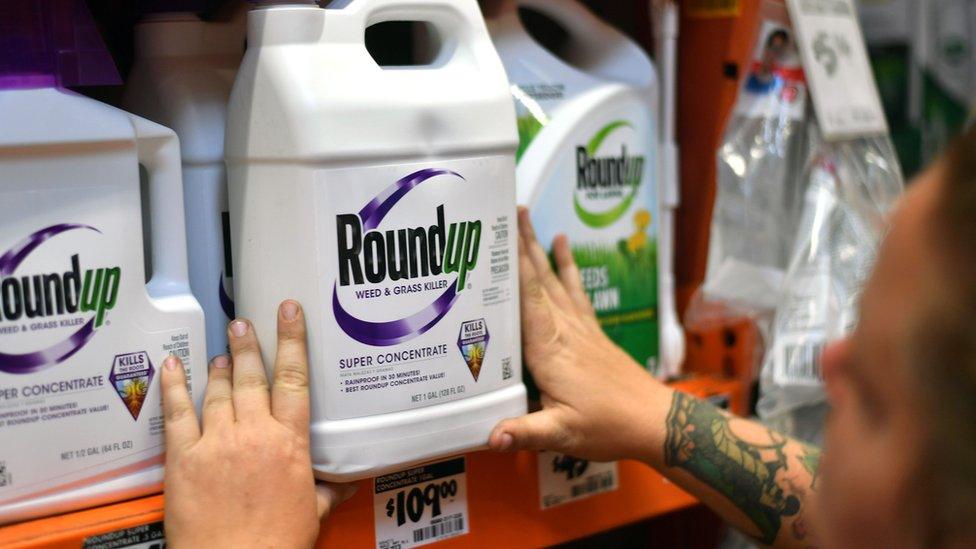Monsanto 'compiled dossier' on political opponents
- Published
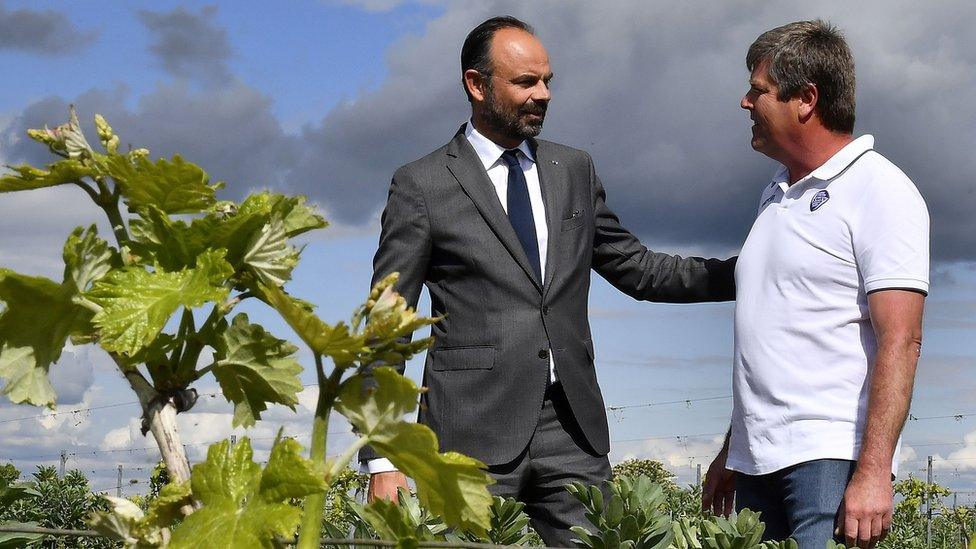
French PM Edouard Philippe speaks with a winemaker reducing his use of glyphosate, May 2019
French officials are investigating after revelations that agro-chemicals firm Monsanto compiled a potentially illegal file on critics on chemicals and genetically modified crops.
The document was made by a PR agency working for Monsanto, which makes the controversial weed killer glyphosate.
Marketed as Roundup by Monsanto, the weed killer has come under fire in France with calls to ban it.
Its parent company Bayer has apologised over Monsanto's dossier.
"This is not the way Bayer seeks dialogue with society and stakeholders," Bayer said, adding that there was no indication of illegal activity.
The list of some 200 people included politicians, journalists and scientists who had raised concerns about Monsanto's activities, including French MEPs and the environment minister at the time, Ségolène Royal.
It was compiled in 2016, ahead of a vote in late 2017 on whether to approve the use of glyphosate in the European Union for the next five years.
That vote passed. Glyphosate has been classified as a "probable carcinogen" by the World Health Organization, but the US Environmental Protection Agency says it is unlikely to cause cancer in humans, and the European Chemicals Agency said there was not enough evidence to label it as carcinogenic.
France, however, voted against approval, and has since declared it will ban the chemical in the coming years.
A copy of the dossier was obtained by Le Monde newspaper and France 2 TV.
Le Monde reported that the list was "problematic" under French law which prohibits the construction of a database "revealing the political and philosophical opinions of a person without their consent".
After the news outlets published their findings, the Paris prosecutor's office announced a preliminary investigation into the collection of personal data.
The communications agency behind the list, Fleishman Hillard, has been dropped by Bayer.
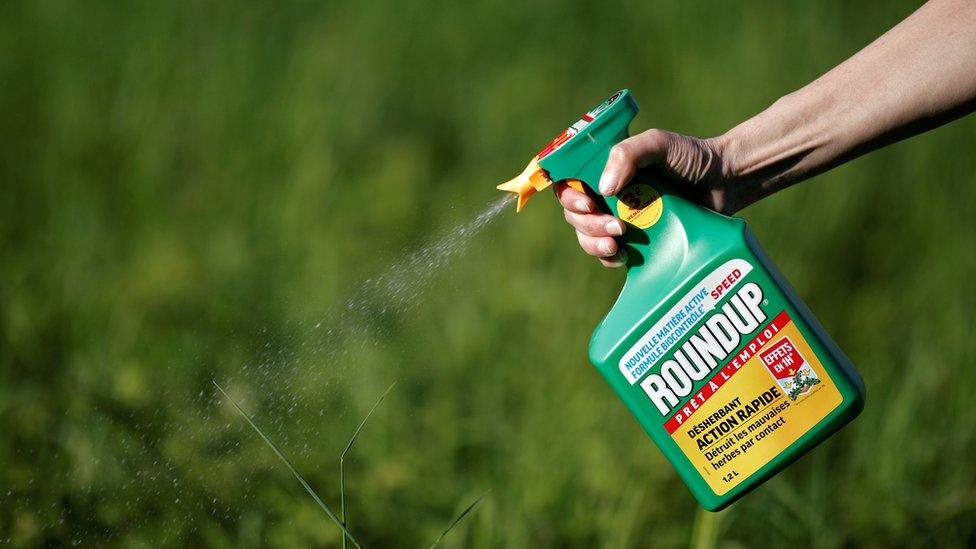
The chemical is widely marketed as "Roundup" by Monsanto
It also said it was hiring a law firm to contact everyone on the list about what information had been gathered.
The French scandal is a headache for the German chemical giant which acquired Monsanto, a US firm, in 2018 for $66bn (£51bn).
In the past year, it has also had to contend with two high-profile court cases in the US, in which the juries found that glyphosate was either responsible for, or a "substantial factor" in, causing cancer.
In France in April, a court found that Monsanto was responsible for the poor health of a farmer who used another product, Lasso, which has been banned in the EU since 2004.
Glyphosate was developed by Monsanto in the US in the 1970s, and has become one of the most widely used ingredients in weed killers worldwide. Its US patent expired in the year 2000, and it is now made by other manufacturers, though Monsanto continued to be a market leader under the brand name Roundup.
In Europe, the EU licence for glyphosate is valid until December 2022. The process for renewal will begin by the end of 2019.
- Published20 March 2019
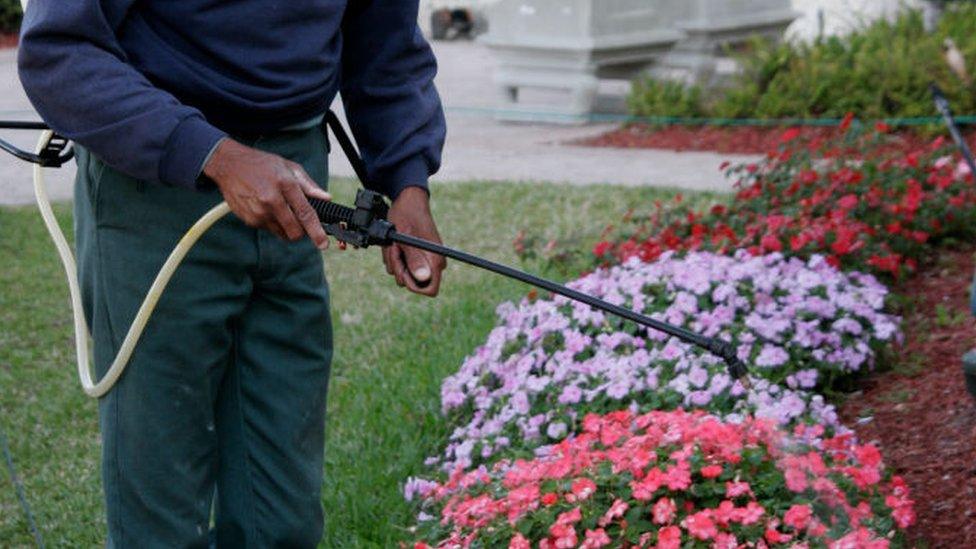
- Published27 November 2017

- Published11 August 2018

- Published9 November 2017

- Published11 August 2018
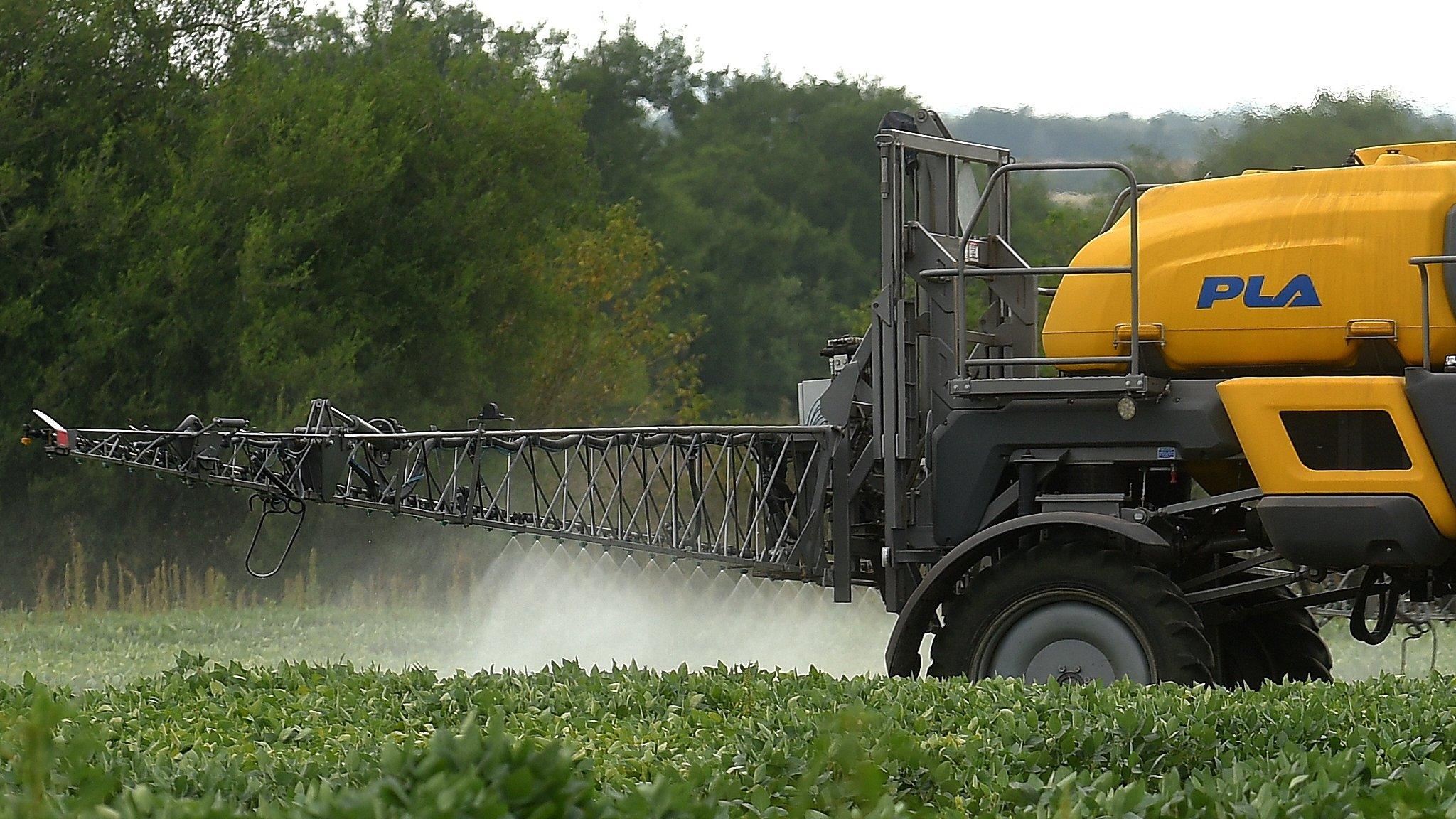
- Published13 August 2018
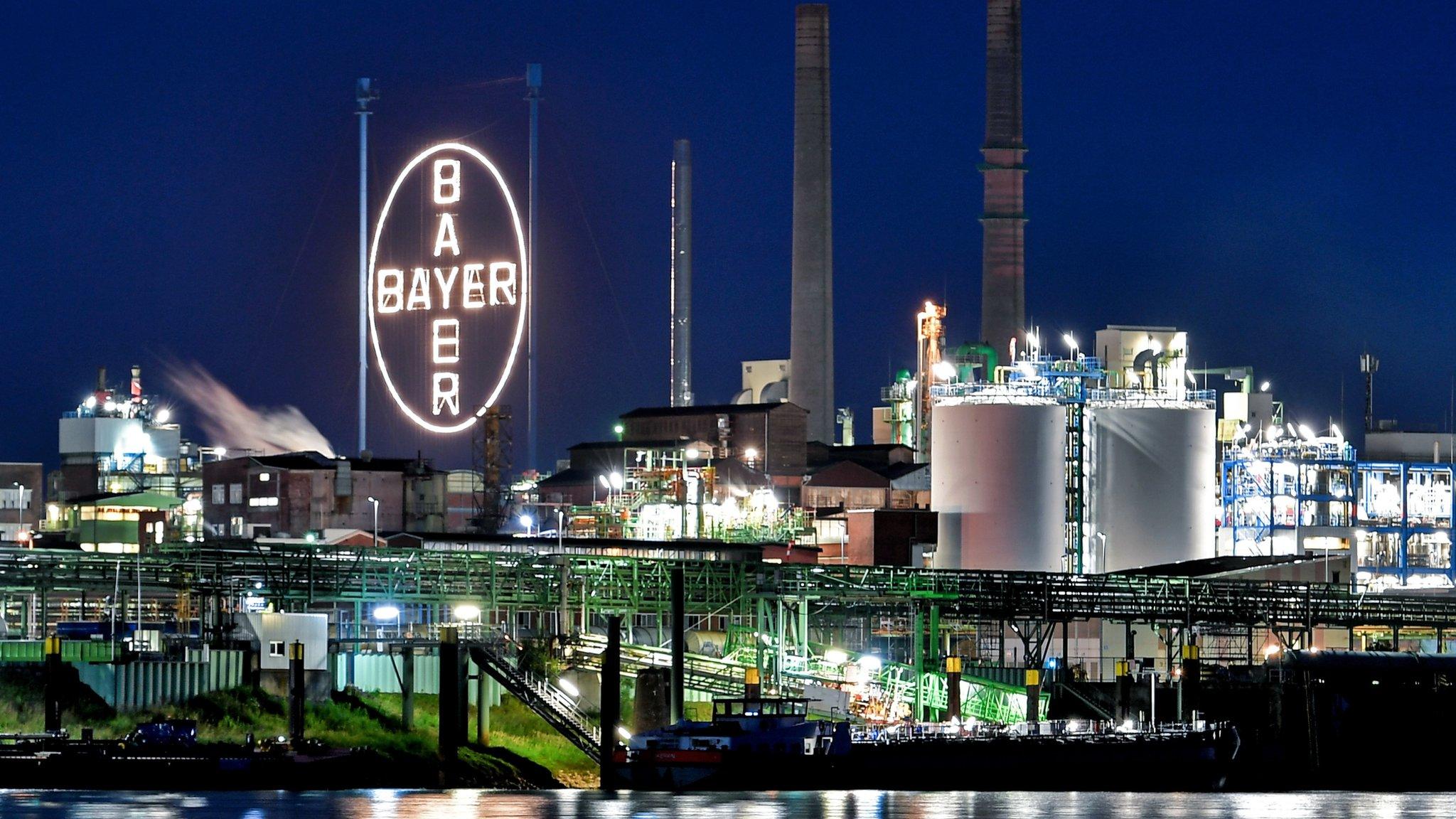
- Published23 August 2018
